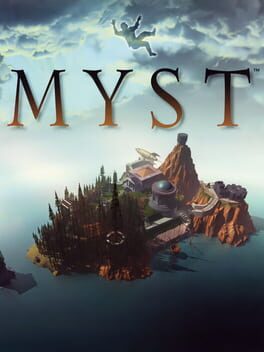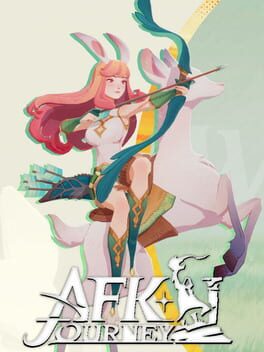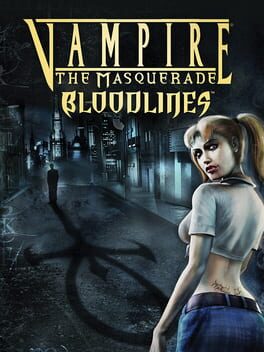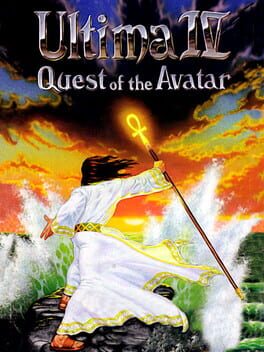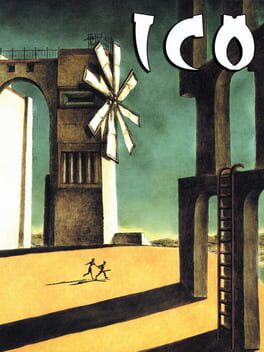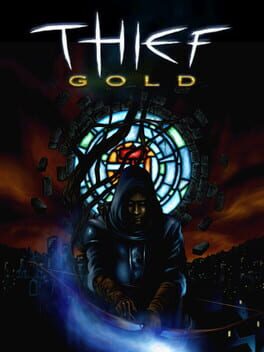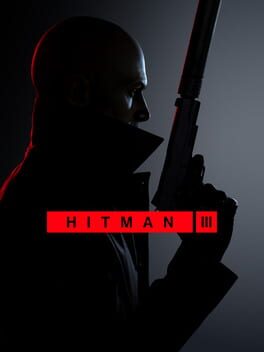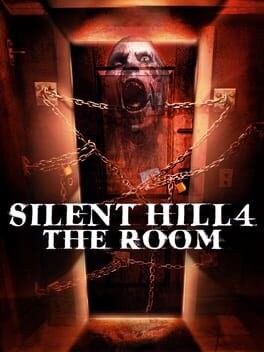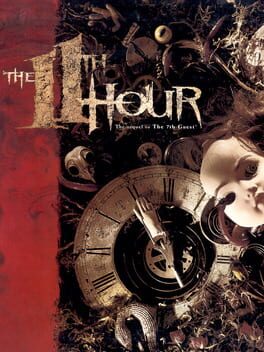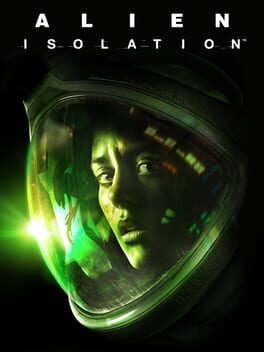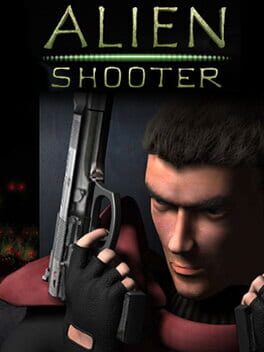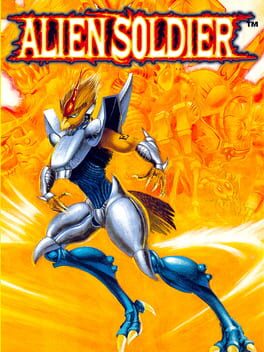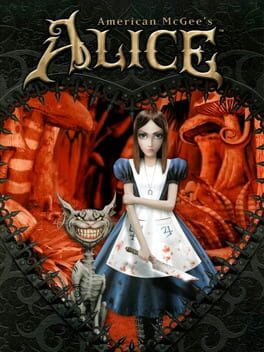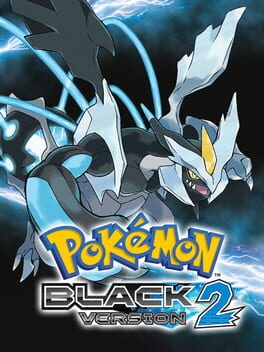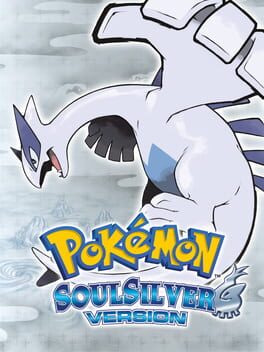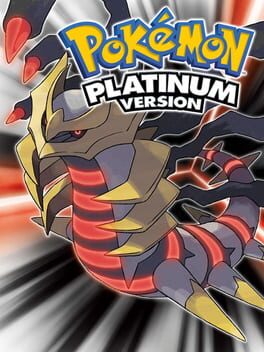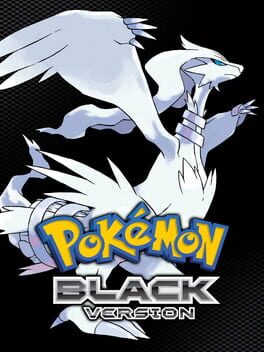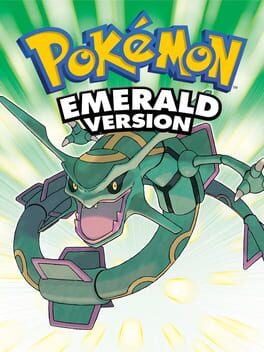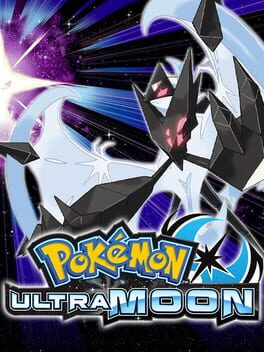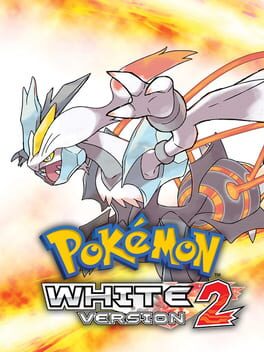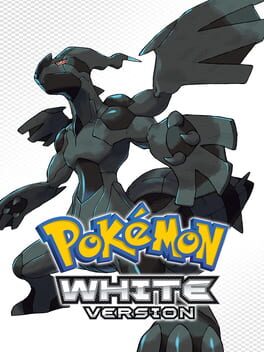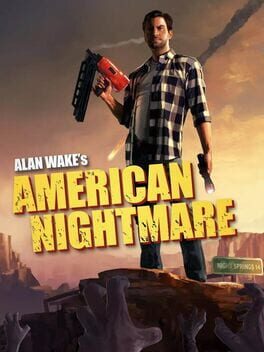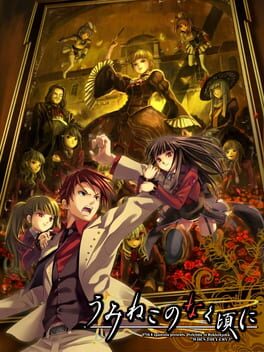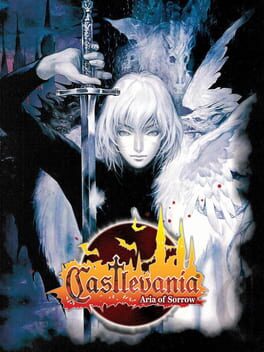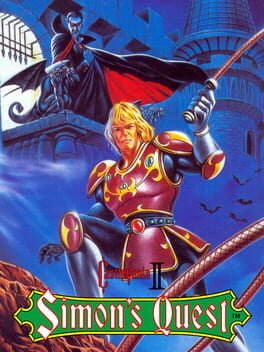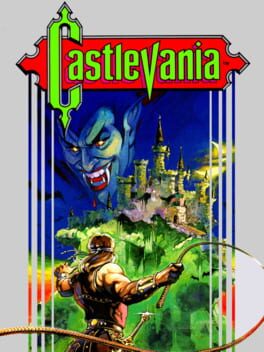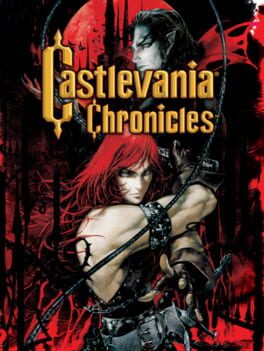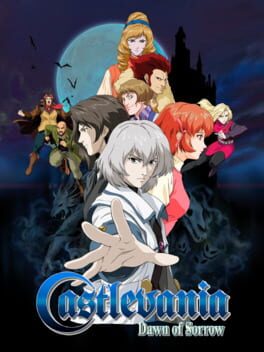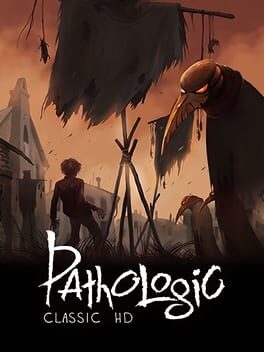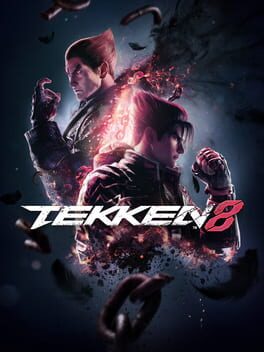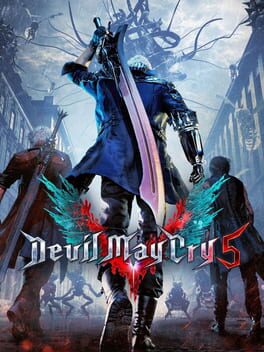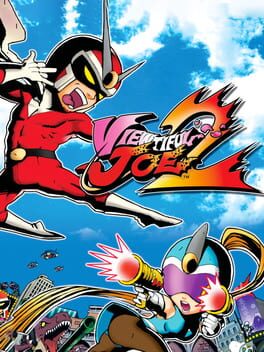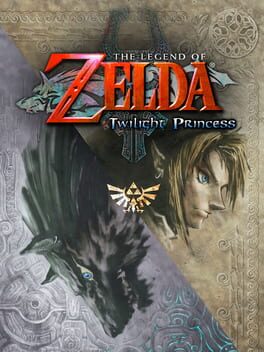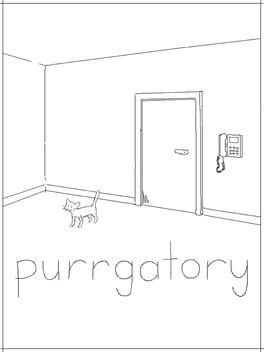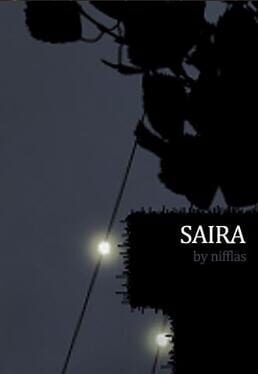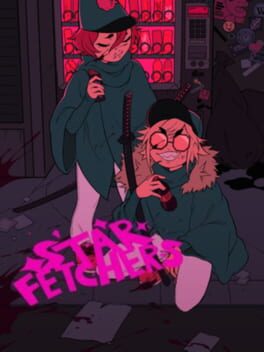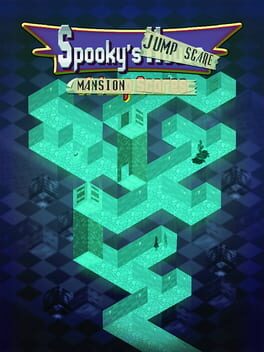choppah
108 reviews liked by choppah
Myst
1993
Behold, my 1500th video game! This special occasion warrants nothing less than a super special review. So, what did I think? Well first, some backstory.
This past year or 2, I've been obsessed with playing games that are considered foundational. Sometimes, I don't enjoy them but I'm still glad I played them for the historical value alone which has been the case for games such as Colossal Cave Adventure, Mystery House, or Portopia. Other times, I find some of my unexpected favourite games that are actually very fun such as Wizardry, Fantasy Zone, or... oh yeah, another game by Myst's developers called The Manhole!
When I played The Manhole and its 3D remake last year, I was very captivated! These are 2 games where there is no real objective but to take in the scenery. Just explore and find hilarious imagery while listening to wacky characters. No win condition, no lose condition, no timer, no stress. In a way, this is a really avant garde method of showing that video games are more than their title suggests. That being, they aren't just "games" played for the sake of winning but perhaps important pieces of art.
With how hyped up Myst has been over the years, I decided I would make it my 1500th game on Backloggd (Jesus I've been on this site for years) knowing that it would be something special and, well....
Look. I immensely respect what Myst is going for. I really love how inspired it is, and I am sure the pre-rendered graphics were mindblowing to 1993 audiences. It's neat how several of my beloved games such as Drowned God were blatantly inspired by it, and it's arguably the most important game in the last 30 or so years due to how it was the big boom for PC gaming the world needed.
Yet, I can't feel passionately about it the way I can with The Manhole or Wizardry or even the likes of Colossal Cave Adventure. It is hard for me to be captivated by Myst's legacy when many point and click/adventure games predate it and, in my opinion, have far better QOL, gameplay, and storytelling.
As far as point and click games from before 1993 go, I have a lot of favourites. Uninvited felt like a very kinetic and replayable game with a unique horror feel. Monkey Island 1-2 are still some of the most entertaining and hilarious games I've experienced, boasting incredible artstyles and early popularization of dynamic music. The Manhole, again, was one of the very first entertainment CD-roms and it's still rather fun. Alter Ego having barely any pictures and still being one of the most engaging, deeply written games I've experienced. Hell, when looking at niche Japanese games I'm impressed at how Cosmology of Kyoto, Otogirisou, or Ihatovo Monogatari managed to breathe new life into the game medium as a whole, displaying such artistry even the likes of Roger Ebert were impressed.
All this is to say that I don't understand at all why Myst is often defended on the basis of "well it's a 30 year old game" especially when other point-and-clicks like Monkey Island before it are still popular today. Hell, Monkey Island is probably much more fun to revisit for the average player. Monkey Island doesn't receive memes like this, at least certainly not with any frequency https://pbs.twimg.com/media/E9tXrGBWYAYBtfc.png
When trying to wrap my head around what made Myst so popular beyond the graphics, I looked at the development history behind the game and found this https://youtu.be/EWX5B6cD4_4
Myst was meant to give players a bang for their buck, resulting in a design based around "brute force" real estate to explore. With no win or lose conditions, the player could feasibly spend weeks if not months on the game. And it doesn't stop there, there is what seems to be a deliberate lack of QOL.
I found myself constantly frustrated by Myst. The save feature restarts the player at the beginning of the area rather than saving their progress, contrary to other even older adventure games. Batteries near the dock drain rather fast and need to be constantly recharged. Activating the large tree elevator is an annoying process. The main character is too much of a moron to carry two pages at a time, so if the player wants to experience every FMV they are forced to go through the same area twice, some of which can be rather confusing to navigate. The sound puzzles where the player must match 5 different sound effects in a row with very large margin of error might as well just say "fuck the deaf and the tone deaf players" good lord. I personally felt the pace broken when 10 minutes into the game I was compelled to read 4 mini-novels in a row. And perhaps most importantly, I had trouble making out a single full sentence in the red and blue books due to the overloaded static noises in the cutscenes.
Are there things I appreciate about Myst? Sure! This is far from a game without merit. The minimalist presentation is rather beautiful, with the pre-rendered images and FMV still holding their own against photorealistic graphics from far stronger hardware. The atmosphere can be rather immersive a lot of the time, with the sound effects being very convincing for every action in the game. I rec listening to this part of the Ars Technica documentary, since it explains things better than I could https://youtu.be/EWX5B6cD4_4?t=860
It's truly a technical engineering feat. Also, after the player obtains the true ending, they are allowed to just explore the island. It really gives me the impression their earlier work on The Manhole helped shape some decisions in this game, and that's just lovely.
Well, that's Myst. It's a technically impressive game, but far from a fun one in my opinion. It was only while writing this review that, perhaps, it hit me.
Everybody has their own unique perspective and experiences that shapes them into the EPIC GAMER they are today. I saved Myst for a rainy day, subconsciously putting it on a pedestal in my head. Most of the people who told me how much they loved Myst mentioned it being a formative artistic experience for them. Could it be because I had the liberty of playing so many untranslated JP adventure games, more modern adventure games, and so forth before Myst, its impact was lost on me?
1500 games is a lot of fucking games. There is an alternate universe out there where I was fascinated by Myst and fell in love with it, rather than found it frustrating in my mid 20s. In fact, this is what one of the developers theorized; only maybe half of players even left the first island. Yet, so many young players who discovered the game left with quite an impression, that they played something which resonated with them FOR the unfamiliar mystique, rather than despite it https://youtu.be/EWX5B6cD4_4?t=1070
When I started typing this review, I wasn't sure if I was happy I played Myst. Yet now, I feel confident I am happy it was my 1500th game. It was not a waste of time, but a good reminder of how games are more than what I play. They are artistic statements, impressive feats of software development, and parts of our culture. The cynic in me can say Myst is a subpar adventure game that only had any success due to the photorealistic graphics. Yet, I'm more inclined to ask one thing:
Is there any game which better embodies the culture of early PC gaming and the appeal of pre-rendered graphics?
God, I fucking love video games.
https://www.youtube.com/watch?v=e49OXXBX3Ko
This past year or 2, I've been obsessed with playing games that are considered foundational. Sometimes, I don't enjoy them but I'm still glad I played them for the historical value alone which has been the case for games such as Colossal Cave Adventure, Mystery House, or Portopia. Other times, I find some of my unexpected favourite games that are actually very fun such as Wizardry, Fantasy Zone, or... oh yeah, another game by Myst's developers called The Manhole!
When I played The Manhole and its 3D remake last year, I was very captivated! These are 2 games where there is no real objective but to take in the scenery. Just explore and find hilarious imagery while listening to wacky characters. No win condition, no lose condition, no timer, no stress. In a way, this is a really avant garde method of showing that video games are more than their title suggests. That being, they aren't just "games" played for the sake of winning but perhaps important pieces of art.
With how hyped up Myst has been over the years, I decided I would make it my 1500th game on Backloggd (Jesus I've been on this site for years) knowing that it would be something special and, well....
Look. I immensely respect what Myst is going for. I really love how inspired it is, and I am sure the pre-rendered graphics were mindblowing to 1993 audiences. It's neat how several of my beloved games such as Drowned God were blatantly inspired by it, and it's arguably the most important game in the last 30 or so years due to how it was the big boom for PC gaming the world needed.
Yet, I can't feel passionately about it the way I can with The Manhole or Wizardry or even the likes of Colossal Cave Adventure. It is hard for me to be captivated by Myst's legacy when many point and click/adventure games predate it and, in my opinion, have far better QOL, gameplay, and storytelling.
As far as point and click games from before 1993 go, I have a lot of favourites. Uninvited felt like a very kinetic and replayable game with a unique horror feel. Monkey Island 1-2 are still some of the most entertaining and hilarious games I've experienced, boasting incredible artstyles and early popularization of dynamic music. The Manhole, again, was one of the very first entertainment CD-roms and it's still rather fun. Alter Ego having barely any pictures and still being one of the most engaging, deeply written games I've experienced. Hell, when looking at niche Japanese games I'm impressed at how Cosmology of Kyoto, Otogirisou, or Ihatovo Monogatari managed to breathe new life into the game medium as a whole, displaying such artistry even the likes of Roger Ebert were impressed.
All this is to say that I don't understand at all why Myst is often defended on the basis of "well it's a 30 year old game" especially when other point-and-clicks like Monkey Island before it are still popular today. Hell, Monkey Island is probably much more fun to revisit for the average player. Monkey Island doesn't receive memes like this, at least certainly not with any frequency https://pbs.twimg.com/media/E9tXrGBWYAYBtfc.png
When trying to wrap my head around what made Myst so popular beyond the graphics, I looked at the development history behind the game and found this https://youtu.be/EWX5B6cD4_4
Myst was meant to give players a bang for their buck, resulting in a design based around "brute force" real estate to explore. With no win or lose conditions, the player could feasibly spend weeks if not months on the game. And it doesn't stop there, there is what seems to be a deliberate lack of QOL.
I found myself constantly frustrated by Myst. The save feature restarts the player at the beginning of the area rather than saving their progress, contrary to other even older adventure games. Batteries near the dock drain rather fast and need to be constantly recharged. Activating the large tree elevator is an annoying process. The main character is too much of a moron to carry two pages at a time, so if the player wants to experience every FMV they are forced to go through the same area twice, some of which can be rather confusing to navigate. The sound puzzles where the player must match 5 different sound effects in a row with very large margin of error might as well just say "fuck the deaf and the tone deaf players" good lord. I personally felt the pace broken when 10 minutes into the game I was compelled to read 4 mini-novels in a row. And perhaps most importantly, I had trouble making out a single full sentence in the red and blue books due to the overloaded static noises in the cutscenes.
Are there things I appreciate about Myst? Sure! This is far from a game without merit. The minimalist presentation is rather beautiful, with the pre-rendered images and FMV still holding their own against photorealistic graphics from far stronger hardware. The atmosphere can be rather immersive a lot of the time, with the sound effects being very convincing for every action in the game. I rec listening to this part of the Ars Technica documentary, since it explains things better than I could https://youtu.be/EWX5B6cD4_4?t=860
It's truly a technical engineering feat. Also, after the player obtains the true ending, they are allowed to just explore the island. It really gives me the impression their earlier work on The Manhole helped shape some decisions in this game, and that's just lovely.
Well, that's Myst. It's a technically impressive game, but far from a fun one in my opinion. It was only while writing this review that, perhaps, it hit me.
Everybody has their own unique perspective and experiences that shapes them into the EPIC GAMER they are today. I saved Myst for a rainy day, subconsciously putting it on a pedestal in my head. Most of the people who told me how much they loved Myst mentioned it being a formative artistic experience for them. Could it be because I had the liberty of playing so many untranslated JP adventure games, more modern adventure games, and so forth before Myst, its impact was lost on me?
1500 games is a lot of fucking games. There is an alternate universe out there where I was fascinated by Myst and fell in love with it, rather than found it frustrating in my mid 20s. In fact, this is what one of the developers theorized; only maybe half of players even left the first island. Yet, so many young players who discovered the game left with quite an impression, that they played something which resonated with them FOR the unfamiliar mystique, rather than despite it https://youtu.be/EWX5B6cD4_4?t=1070
When I started typing this review, I wasn't sure if I was happy I played Myst. Yet now, I feel confident I am happy it was my 1500th game. It was not a waste of time, but a good reminder of how games are more than what I play. They are artistic statements, impressive feats of software development, and parts of our culture. The cynic in me can say Myst is a subpar adventure game that only had any success due to the photorealistic graphics. Yet, I'm more inclined to ask one thing:
Is there any game which better embodies the culture of early PC gaming and the appeal of pre-rendered graphics?
God, I fucking love video games.
https://www.youtube.com/watch?v=e49OXXBX3Ko
Spec Ops: The Line
2012
Spec Ops: The Line
2012
They draw you in with the "This is your fault", they hook you with the "How many Americans have you killed today?", and they reel you in with the "If Lugo were still alive, he would likely suffer from PTSD. So, really, he's the lucky one."
Shows immeasurable guts and measured sincerity in critiquing American's most respected and well-regarded foundation: The Troops. No one has ever, or will ever, have the guts to say "War Bad" again.
Shows immeasurable guts and measured sincerity in critiquing American's most respected and well-regarded foundation: The Troops. No one has ever, or will ever, have the guts to say "War Bad" again.
The Silver Case
2016
Final Fantasy XVI
2023
Final Fantasy XVI is a game obsessed with itself.
Not that it lacks good reason to. From the very opening cutscene, the imagery entrances - two beasts of fire, locked in conflict. The down of the Phoenix glows with HDR-aspected radiance, a cloud of embers billowing off its wing. The demonic Ifrit leaps into the air and tackles the Phoenix in a spectacular collision, incinerating an entire forest, along with the CPU of your launch-model PS5. Never before has “graphics” been this graphical. Never has terrain looked nigh indistinguishable from photogrammetry demos. At long last, real-time cutscenes have exceeded the graphical fidelity of PS3 FMVs. What used to be the cutting edge of computer graphics, rendered on large server farms, is now being drawn thirty times a second on your walled-garden loss-leader gamer box. Truly, we live in blessed times.
Much as that last paragraph of this review was evidently obsessed with its own prose, Final Fantasy XVI sincerely believes in its own worth. Every line is given as much gusto (or anguish) as the stellar English voice cast can possibly muster. Every scene glisters with the sheen of “I Can’t Believe It’s Not Pre-Rendered.” Every combat encounter hands you a choose-your-own-adventure of particle effects you can splash across the screen to decimate exquisitely rendered foes of all shapes and sizes. This game desperately wants to be taken as seriously as a prestige television fantasy show - which was itself a genre taken more seriously circa 2016, at the beginning of XVI’s production. Like a prestige television show, it reaches highs that can only come from a long-form narrative - and at these moments, Final Fantasy XVI shines with the light of a newly born star. But as the fire dies down, and your eyes begin to adjust to the light, it’s hard not to notice the unstable firmament that holds this game together.
As the story unfolds, it starts to become apparent that this self-obsession masks an identity crisis. Familiar melodies from the Final Fantasy series stop feeling like cute homages and start feeling like a lack of confidence. Every time Soken’s music tries to break the mold and stop invoking the work of Uematsu, it’s a huge success - but it’s only in the parts of the story where the creative team feels most confident about, like in the spectacular Eikon fights. The narrative that strings together these Eikon fights feels far less assured, and that gets to my biggest problem with the story - it rarely sticks on one idea long enough to be truly compelling. Even the tropes and trappings of prestige television fall by the wayside about twenty hours in, as if the game got exhausted of its own rhetorical devices. This narrative shakiness leads to many problems - a questionable approach to themes surrounding slavery and freedom from oppression, a lack of focus given to the many women in the story, a main character almost absent of internal conflict past a certain point, and more.
It’s not that I wasn’t invested in the story of the game - the opposite in fact! I cared for many of the characters deeply - I laughed and cried with them, and at moments felt joyful catharsis. But my deep investment in this game - an obsession, as it were - made the blatant missteps feel all the more damning. It was after I finished the game that I realized my obsession with this game neatly mirrored the obsession Final Fantasy XVI has with the rest of its franchise. It’s the most that a Final Fantasy game has ever been about “being a Final Fantasy game.” But rarely does it actually take the bold step of defining what a Final Fantasy game in the current year should be. Instead of becoming something truly distinctive, it actively tries to be less distinctive - less weird, less goofy, less daring - than just about any other Final Fantasy game I’ve played. Outside of the context of this franchise, XVI would be significantly less interesting. And I realized in hindsight that my interest in this game came from it being called “Final Fantasy XVI,” and being directed/produced by creative staff that I generally admire.
The disc for Final Fantasy XVI has now been returned to its pristine steelbook case, with the save data for a completed game now resting dormant on my solid state drive (along with over two hundred screenshots because yes, this game is beautiful). I think one day I’ll come back to this game, mostly because the outer case still wears the proud logo of Final Fantasy, complete with a gorgeous illustration by Yoshitaka Amano, my favorite artist to this day. If the case had a sticker over the logo, with the name “Clive’s Eikonic Adventures” proudly emblazoned, I might leave it on my shelf for a while longer.
Actually, “Clive’s Eikonic Adventures” has a nice ring to it.
Edit: The more distance and hindsight I have from this, the more my impression has degraded. I don't think I'm coming back to this.
Not that it lacks good reason to. From the very opening cutscene, the imagery entrances - two beasts of fire, locked in conflict. The down of the Phoenix glows with HDR-aspected radiance, a cloud of embers billowing off its wing. The demonic Ifrit leaps into the air and tackles the Phoenix in a spectacular collision, incinerating an entire forest, along with the CPU of your launch-model PS5. Never before has “graphics” been this graphical. Never has terrain looked nigh indistinguishable from photogrammetry demos. At long last, real-time cutscenes have exceeded the graphical fidelity of PS3 FMVs. What used to be the cutting edge of computer graphics, rendered on large server farms, is now being drawn thirty times a second on your walled-garden loss-leader gamer box. Truly, we live in blessed times.
Much as that last paragraph of this review was evidently obsessed with its own prose, Final Fantasy XVI sincerely believes in its own worth. Every line is given as much gusto (or anguish) as the stellar English voice cast can possibly muster. Every scene glisters with the sheen of “I Can’t Believe It’s Not Pre-Rendered.” Every combat encounter hands you a choose-your-own-adventure of particle effects you can splash across the screen to decimate exquisitely rendered foes of all shapes and sizes. This game desperately wants to be taken as seriously as a prestige television fantasy show - which was itself a genre taken more seriously circa 2016, at the beginning of XVI’s production. Like a prestige television show, it reaches highs that can only come from a long-form narrative - and at these moments, Final Fantasy XVI shines with the light of a newly born star. But as the fire dies down, and your eyes begin to adjust to the light, it’s hard not to notice the unstable firmament that holds this game together.
As the story unfolds, it starts to become apparent that this self-obsession masks an identity crisis. Familiar melodies from the Final Fantasy series stop feeling like cute homages and start feeling like a lack of confidence. Every time Soken’s music tries to break the mold and stop invoking the work of Uematsu, it’s a huge success - but it’s only in the parts of the story where the creative team feels most confident about, like in the spectacular Eikon fights. The narrative that strings together these Eikon fights feels far less assured, and that gets to my biggest problem with the story - it rarely sticks on one idea long enough to be truly compelling. Even the tropes and trappings of prestige television fall by the wayside about twenty hours in, as if the game got exhausted of its own rhetorical devices. This narrative shakiness leads to many problems - a questionable approach to themes surrounding slavery and freedom from oppression, a lack of focus given to the many women in the story, a main character almost absent of internal conflict past a certain point, and more.
It’s not that I wasn’t invested in the story of the game - the opposite in fact! I cared for many of the characters deeply - I laughed and cried with them, and at moments felt joyful catharsis. But my deep investment in this game - an obsession, as it were - made the blatant missteps feel all the more damning. It was after I finished the game that I realized my obsession with this game neatly mirrored the obsession Final Fantasy XVI has with the rest of its franchise. It’s the most that a Final Fantasy game has ever been about “being a Final Fantasy game.” But rarely does it actually take the bold step of defining what a Final Fantasy game in the current year should be. Instead of becoming something truly distinctive, it actively tries to be less distinctive - less weird, less goofy, less daring - than just about any other Final Fantasy game I’ve played. Outside of the context of this franchise, XVI would be significantly less interesting. And I realized in hindsight that my interest in this game came from it being called “Final Fantasy XVI,” and being directed/produced by creative staff that I generally admire.
The disc for Final Fantasy XVI has now been returned to its pristine steelbook case, with the save data for a completed game now resting dormant on my solid state drive (along with over two hundred screenshots because yes, this game is beautiful). I think one day I’ll come back to this game, mostly because the outer case still wears the proud logo of Final Fantasy, complete with a gorgeous illustration by Yoshitaka Amano, my favorite artist to this day. If the case had a sticker over the logo, with the name “Clive’s Eikonic Adventures” proudly emblazoned, I might leave it on my shelf for a while longer.
Actually, “Clive’s Eikonic Adventures” has a nice ring to it.
Edit: The more distance and hindsight I have from this, the more my impression has degraded. I don't think I'm coming back to this.
Final Fantasy XVI
2023
I considered strongly putting together a long-form critique of this game, but the most damning statement I could possibly make about Final Fantasy XVI is that I truly don't think it's worth it. The ways in which I think this game is bad are not unique or interesting: it is bad in the same way the vast majority of these prestige Sony single-player exclusives are. Its failures are common, predictable, and depressingly endemic. It is bad because it hates women, it is bad because it treats it's subject matter with an aggressive lack of care or interest, it is bad because it's imagination is as narrow and constrained as it's level design. But more than anything else, it is bad because it only wants to be Good.
Oxymoronic a statement as it might appear, this is core to the game's failings to me. People who make games generally want to make good games, of course, but paired with that there is an intent, an interest, an idea that seeks to be communicated, that the eloquence with which it professes its aesthetic, thematic, or mechanical goals will produce the quality it seeks. Final Fantasy XVI may have such goals, but they are supplicant to its desire to be liked, and so, rather than plant a flag of its own, it stitches together one from fabric pillaged from the most immediate eikons of popularity and quality - A Song of Ice and Fire, God of War, Demon Slayer, Devil May Cry - desperately begging to be liked by cloaking itself in what many people already do, needing to be loved in the way those things are, without any of the work or vision of its influences, and without any charisma of its own. Much like the patch and DLC content for Final Fantasy XV, it's a reactionary and cloying work that contorts itself into a shape it thinks people will love, rather than finding a unique self to be.
From the aggressively self-serious tone that embraces wholeheartedly the aesthetics of Prestige Fantasy Television with all its fucks and shits and incest and Grim Darkness to let you know that This Isn't Your Daddy's Final Fantasy, without actually being anywhere near as genuinely Dark, sad, or depressing as something like XV, from combat that borrows the surface-level signifiers of Devil May Cry combat - stingers, devil bringers, enemy step - but without any actual opposition or reaction of that series' diverse and reactive enemy set and thoughtful level design, or the way there's a episode of television-worth of lectures from a character explaining troop movements and map markers that genuinely do not matter in any way in order to make you feel like you're experiencing a well thought-out and materially concerned political Serious Fantasy, Final Fantasy XVI is pure wafer-thin illusion; all the surface from it's myriad influences but none of the depth or nuance, a greatest hits album from a band with no voice to call their own, an algorithmically generated playlist of hits that tunelessly resound with nothing. It looks like Devil May Cry, but it isn't - Devil May Cry would ask more of you than dodging one attack at a time while you perform a particularly flashy MMO rotation. It looks like A Song of Ice and Fire, but it isn't - without Martin's careful historical eye and materialist concerns, the illusion that this comes even within striking distance of that flawed work shatters when you think about the setting for more than a moment.
In fairness, Final Fantasy XVI does bring more than just the surface level into its world: it also brings with it the nastiest and ugliest parts of those works into this one, replicated wholeheartedly as Aesthetic, bereft of whatever semblance of texture and critique may have once been there. Benedikta Harman might be the most disgustingly treated woman in a recent work of fiction, the seemingly uniform AAA Game misogyny of evil mothers and heroic, redeemable fathers is alive and well, 16's version of this now agonizingly tired cliche going farther even than games I've railed against for it in the past, which all culminates in a moment where three men tell the female lead to stay home while they go and fight (despite one of those men being a proven liability to himself and others when doing the same thing he is about to go and do again, while she is not), she immediately acquiesces, and dutifully remains in the proverbial kitchen. Something that thinks so little of women is self-evidently incapable of meaningfully tackling any real-world issue, something Final Fantasy XVI goes on to decisively prove, with its story of systemic evils defeated not with systemic criticism, but with Great, Powerful Men, a particularly tiresome kind of rugged bootstrap individualism that seeks to reduce real-world evils to shonen enemies for the Special Man with Special Powers to defeat on his lonesome. It's an attempt to discuss oppression and racism that would embarrass even the other shonen media it is clearly closer in spirit to than the dark fantasy political epic it wears the skin of. In a world where the power fantasy of the shonen superhero is sacrosanct over all other concerns, it leads to a conclusion as absurd and fundamentally unimaginative as shonen jump's weakest scripts: the only thing that can stop a Bad Guy with an Eikon is a Good Guy with an Eikon.
In borrowing the aesthetics of the dark fantasy - and Matsuno games - it seeks to emulate, but without the nuance, FF16 becomes a game where the perspective of the enslaved is almost completely absent (Clive's period as a slave might as well not have occurred for all it impacts his character), and the power of nobility is Good when it is wielded by Good Hands like Lord Rosfield, a slave owner who, despite owning the clearly abused character who serves as our introduction to the bearers, is eulogized completely uncritically by the script, until a final side quest has a character claim that he was planning to free the slaves all along...alongside a letter where Lord Rosfield discusses his desire to "put down the savages". I've never seen attempted slave owner apologia that didn't reveal its virulent underlying racism, and this is no exception. In fact, any time the game attempts to put on a facade of being about something other than The Shonen Hero battling other Kamen Riders for dominance, it crumbles nigh-immediately; when Final Fantasy 16 makes its overtures towards the Power of Friendship, it rings utterly false and hollow: Clive's friends are not his power. His power is his power.
The only part of the game that truly spoke to me was the widely-derided side-quests, which offer a peek into a more compelling story: the story of a man doing the work to build and maintain a community, contributing to both the material and emotional needs of a commune that attempts to exist outside the violence of society. As tedious as these sidequests are - and as agonizing as their pacing so often is - it's the only part of this game where it felt like I was engaging with an idea. But ultimately, even this is annihilated by the game's bootstrap nonsense - that being that the hideaway is funded and maintained by the wealthy and influential across the world, the direct beneficiaries and embodiments of the status quo funding what their involvement reveals to be an utterly illusionary attempt to escape it, rendering what could be an effective exploration of what building a new idea of a community practically looks like into something that could be good neighbors with Galt's Gulch.
In a series that is routinely deeply rewarding for me to consider, FF16 stands as perhaps its most shallow, underwritten, and vacuous entry in decades. All games are ultimately illusions, of course: we're all just moving data around spreadsheets, at the end of the day. But - as is the modern AAA mode de jour - 16 is the result of the careful subtraction of texture from the experience of a game, the removal of any potential frictions and frustrations, but further even than that, it is the removal of personality, of difference, it is the attempt to make make the smoothest, most likable affect possible to the widest number of people possible. And, just like with its AAA brethren, it has almost nothing to offer me. It is the affect of Devil May Cry without its texture, the affect of Game of Thrones without even its nuance, and the affect of Final Fantasy without its soul.
Final Fantasy XVI is ultimately a success. It sought out to be Good, in the way a PS5 game like this is Good, and succeeded. And in so doing, it closed off any possibility that it would ever reach me.
It doesn’t really surprise me that each positive sentiment I have seen on Final Fantasy XVI is followed by an exclamation of derision over the series’ recent past. Whether the point of betrayal and failure was in XV, or with XIII, or even as far back as VIII, the rhetorical move is well and truly that Final Fantasy has been Bad, and with XVI, it is good again. Unfortunately, as someone who thought Final Fantasy has Been Good, consistently, throughout essentially the entire span of it's existence, I find myself on the other side of this one.
Final Fantasy XV convinced me that I could still love video games when I thought, for a moment, that I might not. That it was still possible to make games on this scale that were idiosyncratic, personal, and deeply human, even in the awful place the video game industry is in.
Final Fantasy XVI convinced me that it isn't.
Oxymoronic a statement as it might appear, this is core to the game's failings to me. People who make games generally want to make good games, of course, but paired with that there is an intent, an interest, an idea that seeks to be communicated, that the eloquence with which it professes its aesthetic, thematic, or mechanical goals will produce the quality it seeks. Final Fantasy XVI may have such goals, but they are supplicant to its desire to be liked, and so, rather than plant a flag of its own, it stitches together one from fabric pillaged from the most immediate eikons of popularity and quality - A Song of Ice and Fire, God of War, Demon Slayer, Devil May Cry - desperately begging to be liked by cloaking itself in what many people already do, needing to be loved in the way those things are, without any of the work or vision of its influences, and without any charisma of its own. Much like the patch and DLC content for Final Fantasy XV, it's a reactionary and cloying work that contorts itself into a shape it thinks people will love, rather than finding a unique self to be.
From the aggressively self-serious tone that embraces wholeheartedly the aesthetics of Prestige Fantasy Television with all its fucks and shits and incest and Grim Darkness to let you know that This Isn't Your Daddy's Final Fantasy, without actually being anywhere near as genuinely Dark, sad, or depressing as something like XV, from combat that borrows the surface-level signifiers of Devil May Cry combat - stingers, devil bringers, enemy step - but without any actual opposition or reaction of that series' diverse and reactive enemy set and thoughtful level design, or the way there's a episode of television-worth of lectures from a character explaining troop movements and map markers that genuinely do not matter in any way in order to make you feel like you're experiencing a well thought-out and materially concerned political Serious Fantasy, Final Fantasy XVI is pure wafer-thin illusion; all the surface from it's myriad influences but none of the depth or nuance, a greatest hits album from a band with no voice to call their own, an algorithmically generated playlist of hits that tunelessly resound with nothing. It looks like Devil May Cry, but it isn't - Devil May Cry would ask more of you than dodging one attack at a time while you perform a particularly flashy MMO rotation. It looks like A Song of Ice and Fire, but it isn't - without Martin's careful historical eye and materialist concerns, the illusion that this comes even within striking distance of that flawed work shatters when you think about the setting for more than a moment.
In fairness, Final Fantasy XVI does bring more than just the surface level into its world: it also brings with it the nastiest and ugliest parts of those works into this one, replicated wholeheartedly as Aesthetic, bereft of whatever semblance of texture and critique may have once been there. Benedikta Harman might be the most disgustingly treated woman in a recent work of fiction, the seemingly uniform AAA Game misogyny of evil mothers and heroic, redeemable fathers is alive and well, 16's version of this now agonizingly tired cliche going farther even than games I've railed against for it in the past, which all culminates in a moment where three men tell the female lead to stay home while they go and fight (despite one of those men being a proven liability to himself and others when doing the same thing he is about to go and do again, while she is not), she immediately acquiesces, and dutifully remains in the proverbial kitchen. Something that thinks so little of women is self-evidently incapable of meaningfully tackling any real-world issue, something Final Fantasy XVI goes on to decisively prove, with its story of systemic evils defeated not with systemic criticism, but with Great, Powerful Men, a particularly tiresome kind of rugged bootstrap individualism that seeks to reduce real-world evils to shonen enemies for the Special Man with Special Powers to defeat on his lonesome. It's an attempt to discuss oppression and racism that would embarrass even the other shonen media it is clearly closer in spirit to than the dark fantasy political epic it wears the skin of. In a world where the power fantasy of the shonen superhero is sacrosanct over all other concerns, it leads to a conclusion as absurd and fundamentally unimaginative as shonen jump's weakest scripts: the only thing that can stop a Bad Guy with an Eikon is a Good Guy with an Eikon.
In borrowing the aesthetics of the dark fantasy - and Matsuno games - it seeks to emulate, but without the nuance, FF16 becomes a game where the perspective of the enslaved is almost completely absent (Clive's period as a slave might as well not have occurred for all it impacts his character), and the power of nobility is Good when it is wielded by Good Hands like Lord Rosfield, a slave owner who, despite owning the clearly abused character who serves as our introduction to the bearers, is eulogized completely uncritically by the script, until a final side quest has a character claim that he was planning to free the slaves all along...alongside a letter where Lord Rosfield discusses his desire to "put down the savages". I've never seen attempted slave owner apologia that didn't reveal its virulent underlying racism, and this is no exception. In fact, any time the game attempts to put on a facade of being about something other than The Shonen Hero battling other Kamen Riders for dominance, it crumbles nigh-immediately; when Final Fantasy 16 makes its overtures towards the Power of Friendship, it rings utterly false and hollow: Clive's friends are not his power. His power is his power.
The only part of the game that truly spoke to me was the widely-derided side-quests, which offer a peek into a more compelling story: the story of a man doing the work to build and maintain a community, contributing to both the material and emotional needs of a commune that attempts to exist outside the violence of society. As tedious as these sidequests are - and as agonizing as their pacing so often is - it's the only part of this game where it felt like I was engaging with an idea. But ultimately, even this is annihilated by the game's bootstrap nonsense - that being that the hideaway is funded and maintained by the wealthy and influential across the world, the direct beneficiaries and embodiments of the status quo funding what their involvement reveals to be an utterly illusionary attempt to escape it, rendering what could be an effective exploration of what building a new idea of a community practically looks like into something that could be good neighbors with Galt's Gulch.
In a series that is routinely deeply rewarding for me to consider, FF16 stands as perhaps its most shallow, underwritten, and vacuous entry in decades. All games are ultimately illusions, of course: we're all just moving data around spreadsheets, at the end of the day. But - as is the modern AAA mode de jour - 16 is the result of the careful subtraction of texture from the experience of a game, the removal of any potential frictions and frustrations, but further even than that, it is the removal of personality, of difference, it is the attempt to make make the smoothest, most likable affect possible to the widest number of people possible. And, just like with its AAA brethren, it has almost nothing to offer me. It is the affect of Devil May Cry without its texture, the affect of Game of Thrones without even its nuance, and the affect of Final Fantasy without its soul.
Final Fantasy XVI is ultimately a success. It sought out to be Good, in the way a PS5 game like this is Good, and succeeded. And in so doing, it closed off any possibility that it would ever reach me.
It doesn’t really surprise me that each positive sentiment I have seen on Final Fantasy XVI is followed by an exclamation of derision over the series’ recent past. Whether the point of betrayal and failure was in XV, or with XIII, or even as far back as VIII, the rhetorical move is well and truly that Final Fantasy has been Bad, and with XVI, it is good again. Unfortunately, as someone who thought Final Fantasy has Been Good, consistently, throughout essentially the entire span of it's existence, I find myself on the other side of this one.
Final Fantasy XV convinced me that I could still love video games when I thought, for a moment, that I might not. That it was still possible to make games on this scale that were idiosyncratic, personal, and deeply human, even in the awful place the video game industry is in.
Final Fantasy XVI convinced me that it isn't.
If there’s anything in this world worth keeping alive, it’s love.
In the void that is Revachol, we see the light of love and hope slowly fade away. It is up to us to cultivate and nurture that light so it does not die. Love is not dead! As you read this, you are alive and breathing, and it's up to you to seize what remains and fight for it. We can no longer wait for some great revolution that will fix all of our problems. If you truly desire a revolution, you must create the conditions necessary to birth it!
Disco Elysium isn’t just a game about what political faction you align with or finding out who lynched the man behind Whirling-in-Rags; it’s a story about love and why we must hold onto it, even in the darkest of times. I understand that nowadays, with the current state of affairs, it's hard to believe in love and hope. It's difficult to place our hope in a future that seems to have been stolen away from us, yet that's precisely when we need it the most.
I choose to believe in love. I choose to hold on to the hope that a better future is possible, no matter what, because I believe it is. The people we know, the community we live in, and the world we inhabit are worth fighting for. Disco Elysium taught me that fixing the world and making it a better place isn’t just about picking up a gun and waging some violent revolution; it’s about cultivating community and caring for those in it. That’s where the true beauty of Disco Elysium lies.
I believe the way this game conveys that message is quite powerful. Disco doesn't make some grand showy gesture beating you over the head with its message; instead, it laboriously takes the time to show you that the world you live in is beautiful and worth fighting for. It spends the time showing you the inner lives of those around you and has you helping them, one person at a time.
There is one specific character that I feel best embodies this: Cuno. Cuno, at first, is seen to be an irrational, difficult, vulgar, and poorly-behaved child, which leads you to inevitably hate him. As you learn more about Cuno and his home life, however, you realise there’s something greater at play. He doesn’t act out for the hell of it; he is the way he is because his father is a drunk who’s fallen down on his luck due to becoming a victim of the system giving up on him and his son. He’s left with no choice. The system has abandoned Uuno and his son, leaving them both to fend for themselves and pick up the pieces. Which sadly isn’t uncommon in Revachol and the real world as well. It’s perhaps one of the most striking and poignant stories in the game. I eventually went from despising Cuno to feeling empathy for him, as I did for many others in Revachol when I learned their stories.
I believe this approach to storytelling and character writing is incredibly effective, and the best part about Disco Elysium is that these kinds of stories are all over the game. This goes to show how much love and care was put into humanising the inhabitants of Revachol, which helps make the world feel alive. Because of how well the game fleshed out its world and characters Disco Elysium was successful at conveying the message that this world is worth fighting for. Not only was I captivated by this world, but as the game drew to a close, I found myself deeply invested in the wellbeing of these characters and the city.
As I learned about these stories, Revachol’s history, and the many political factions vying for power, I realised that this game was never about solving a murder or finding which faction is "correct." It was about learning to love those around us and working together to create a better world, one step at a time. Creating a better world was never an unattainable goal conjured up in the minds of idealistic and "ignorant" kids. It is a possible reality, but it demands the working toiling masses of the world unite and work hand in hand in creating this future. It is on us to seize the future and lift eachother up when we need it most.
Never give up on fighting for this future. It is only dead when you allow yourself to be convinced that it is.
In the void that is Revachol, we see the light of love and hope slowly fade away. It is up to us to cultivate and nurture that light so it does not die. Love is not dead! As you read this, you are alive and breathing, and it's up to you to seize what remains and fight for it. We can no longer wait for some great revolution that will fix all of our problems. If you truly desire a revolution, you must create the conditions necessary to birth it!
Disco Elysium isn’t just a game about what political faction you align with or finding out who lynched the man behind Whirling-in-Rags; it’s a story about love and why we must hold onto it, even in the darkest of times. I understand that nowadays, with the current state of affairs, it's hard to believe in love and hope. It's difficult to place our hope in a future that seems to have been stolen away from us, yet that's precisely when we need it the most.
I choose to believe in love. I choose to hold on to the hope that a better future is possible, no matter what, because I believe it is. The people we know, the community we live in, and the world we inhabit are worth fighting for. Disco Elysium taught me that fixing the world and making it a better place isn’t just about picking up a gun and waging some violent revolution; it’s about cultivating community and caring for those in it. That’s where the true beauty of Disco Elysium lies.
I believe the way this game conveys that message is quite powerful. Disco doesn't make some grand showy gesture beating you over the head with its message; instead, it laboriously takes the time to show you that the world you live in is beautiful and worth fighting for. It spends the time showing you the inner lives of those around you and has you helping them, one person at a time.
There is one specific character that I feel best embodies this: Cuno. Cuno, at first, is seen to be an irrational, difficult, vulgar, and poorly-behaved child, which leads you to inevitably hate him. As you learn more about Cuno and his home life, however, you realise there’s something greater at play. He doesn’t act out for the hell of it; he is the way he is because his father is a drunk who’s fallen down on his luck due to becoming a victim of the system giving up on him and his son. He’s left with no choice. The system has abandoned Uuno and his son, leaving them both to fend for themselves and pick up the pieces. Which sadly isn’t uncommon in Revachol and the real world as well. It’s perhaps one of the most striking and poignant stories in the game. I eventually went from despising Cuno to feeling empathy for him, as I did for many others in Revachol when I learned their stories.
I believe this approach to storytelling and character writing is incredibly effective, and the best part about Disco Elysium is that these kinds of stories are all over the game. This goes to show how much love and care was put into humanising the inhabitants of Revachol, which helps make the world feel alive. Because of how well the game fleshed out its world and characters Disco Elysium was successful at conveying the message that this world is worth fighting for. Not only was I captivated by this world, but as the game drew to a close, I found myself deeply invested in the wellbeing of these characters and the city.
As I learned about these stories, Revachol’s history, and the many political factions vying for power, I realised that this game was never about solving a murder or finding which faction is "correct." It was about learning to love those around us and working together to create a better world, one step at a time. Creating a better world was never an unattainable goal conjured up in the minds of idealistic and "ignorant" kids. It is a possible reality, but it demands the working toiling masses of the world unite and work hand in hand in creating this future. It is on us to seize the future and lift eachother up when we need it most.
Never give up on fighting for this future. It is only dead when you allow yourself to be convinced that it is.
Final Fantasy VII
1997
When it comes to Final Fantasy VII, I think there tends to be a general fixation on Midgar as a centralized point of identity for the game. And while I do think it's one of the best opening segments in maybe any videogame, what makes it work so well in the grand scheme of things is just how introspective the rest of the game feels when juxtaposed to its explosive sense of grandiosity.
Final Fantasy VII's globe trotting adventure isn't primarily defined by it's sense for theatrics, but by it's mellow tone and somber sensibilities. The towns you come across are oftentimes humble and restrained, carefully crafted with precision point environmental design and delicate cinematography. There's a tender sense of balance to found throughout the whole affair, as it seeks to comfort you just as often as it alienates you. That push-and-pull dynamic it shares with the player is such a key focal point as to what make the worlds of VII and VIII feel so utterly compelling to me, and I can't help but feel that the unquestioned contrast between the science and fantasy elements plays a major factor in how sheerly effective that relationship it is.
Aerith's fate is something I'll never forget, not just because of the effective dramatization found within that one moment, but because of how silent and truly felt her absence is across the rest of the game. A lot of people give this game grief for putting the snowboarding segment not even like twenty minutes later, but the fact that the game just moves on afterwards without dwelling on itself too hard is exactly what I think makes it brilliant. Final Fantasy VII allows its punctual moments to breathe and sink skin deep, and it knows that no amount of self indulgent dialogue commemorating Aerith would ever hit as hard as opening the party screen just to see a missing slot there.
Cloud might not be the person he says he is, but what he becomes through learning to open his heart to other people and show compassion makes him more of a hero than any mere SOLDIER could ever hope to be. He never has any major transformation in regards to physicality and utility, he doesn't have to. Just as he doesn't need to be told by someone that he's finally enough, he always was.
For every magnificent setpiece Final Fantasy VII has, there's a slew of soft spoken moments of beauty that truly make this game what it is, even up to its final moments. It ends the same way it began, a friendly face amidst a writhing future of uncertainty. That faint shimmer of hope shining just as bright as it always has.
Final Fantasy VII's globe trotting adventure isn't primarily defined by it's sense for theatrics, but by it's mellow tone and somber sensibilities. The towns you come across are oftentimes humble and restrained, carefully crafted with precision point environmental design and delicate cinematography. There's a tender sense of balance to found throughout the whole affair, as it seeks to comfort you just as often as it alienates you. That push-and-pull dynamic it shares with the player is such a key focal point as to what make the worlds of VII and VIII feel so utterly compelling to me, and I can't help but feel that the unquestioned contrast between the science and fantasy elements plays a major factor in how sheerly effective that relationship it is.
Aerith's fate is something I'll never forget, not just because of the effective dramatization found within that one moment, but because of how silent and truly felt her absence is across the rest of the game. A lot of people give this game grief for putting the snowboarding segment not even like twenty minutes later, but the fact that the game just moves on afterwards without dwelling on itself too hard is exactly what I think makes it brilliant. Final Fantasy VII allows its punctual moments to breathe and sink skin deep, and it knows that no amount of self indulgent dialogue commemorating Aerith would ever hit as hard as opening the party screen just to see a missing slot there.
Cloud might not be the person he says he is, but what he becomes through learning to open his heart to other people and show compassion makes him more of a hero than any mere SOLDIER could ever hope to be. He never has any major transformation in regards to physicality and utility, he doesn't have to. Just as he doesn't need to be told by someone that he's finally enough, he always was.
For every magnificent setpiece Final Fantasy VII has, there's a slew of soft spoken moments of beauty that truly make this game what it is, even up to its final moments. It ends the same way it began, a friendly face amidst a writhing future of uncertainty. That faint shimmer of hope shining just as bright as it always has.
AFK Journey
2024
11 lists liked by choppah
by CorpsSansOrganes |
18 Games
by CorpsSansOrganes |
155 Games
by Czerial |
21 Games
by CorpsSansOrganes |
15 Games
by Bells |
74 Games
by Bells |
21 Games
by Bells |
30 Games
by letshugbro |
8 Games
